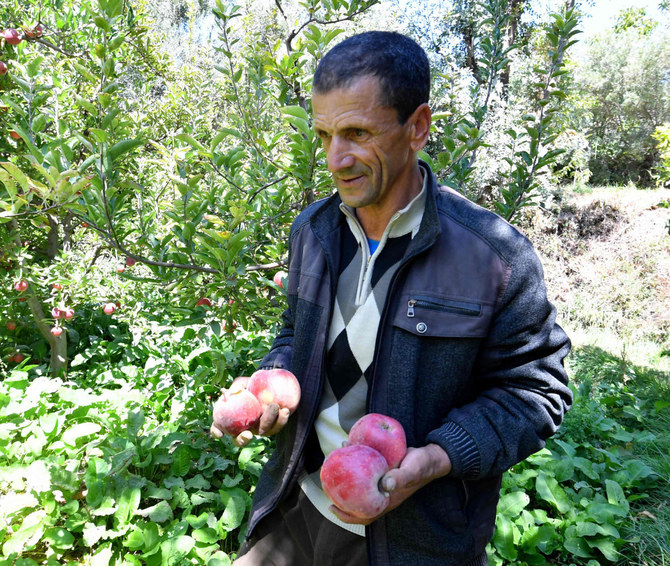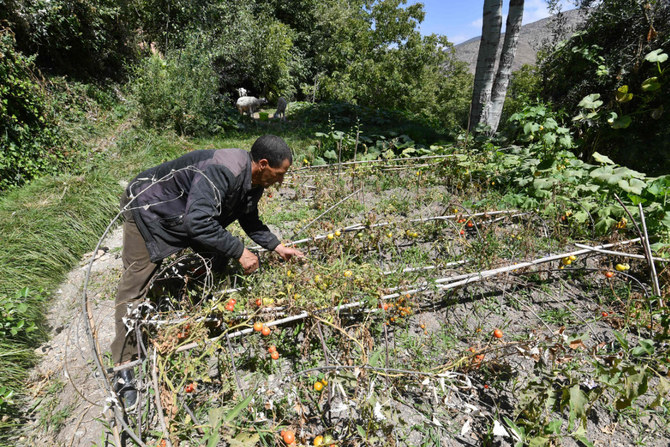INEGHEDE, Morocco: Mohammed Al Moutawak’s village was destroyed by Morocco’s powerful earthquake and his apple harvest ruined, but he refuses to leave the land that is vital to small farmers like him.
Drought and extreme weather have long taken a toll on the North African kingdom’s growers, but the quake spells new challenges that are just beginning to come into focus.
“We thought hail was our worst enemy, but now we’ve got another,” said the 56-year-old farmer from the mountain village of Ineghede in the worst-hit Al-Haouz region south of Marrakech.
“The earthquake, it has destroyed everything.”
Days after the quake that killed more than 2,900 people, he was looking sadly at his apple and walnut trees growing on terraces carved into the Atlas Mountains.
With dust-covered hands, he pointed to the trees his family has cultivated for generations and which still stand, unlike the stone and wood houses of his village.
The September 8 disaster killed 11 of the hamlet’s 200 inhabitants and left survivors living in yellow aid tents.
The Golden and Gala apples Moutawak had expected to harvest now laid in the grass, their scent mingling with the stench of a decomposing donkey buried under the rubble.
Because the fruit had not yet ripened, his harvest is lost, along with the profits he had hoped to use to settle his debts.
In the village, the search for survivors is over.
All bodies have been recovered and everyone else is accounted for, unlike in other towns where rescue workers were still searching for signs of life, six days after the quake.
Women were sorting through blankets and clothes delivered by civilians while men were digging through the rubble for the basics of daily life: glasses, pots and water cans.
As elsewhere in these mountains, small-scale farming, along with herding goats, cows and other livestock, is an essential source of food and income.
“We work hard to raise a little money by harvesting apples, so that we can prepare for the start of the new school year and help our families a little,” said another resident, Jamel Ait Bouyahia, 42.
In recent years, the Moroccan government and donors have pushed ahead with aid programs, some aimed at boosting resilience in the face of climate change.
Other development initiatives have more specifically aimed to break through the isolation of village life and provide more autonomy to women.
There have also been programs to reuse treated wastewater in agriculture, and to promote water-saving drip-irrigation.
Access to water is now one of the biggest looming problems.
“The sector most seriously affected by the earthquake is irrigation,” said Bouyahia, who added that almost all the pipes had been destroyed.
There is still water in the wells, but stones that shifted during the quake have blocked the flow from springs, said Moutawak.
Moroccan authorities say the problem is widespread in the region, with water networks also impacted in areas including Amizmiz, Moulay Brahim and Talat Nyacoub.
The upcoming reconstruction efforts will serve as “a wake-up call for development workers,” said Hlima Razkaoui, director of the group Care Maroc, which has worked extensively in the region.
She said the effort will have to help people rebuild in a resilient way, with improved access to water, voicing hope that this will give communities “an opportunity to bounce back.”


























